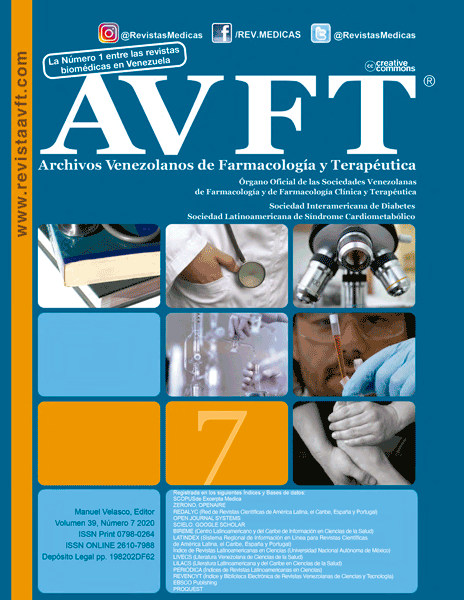Effect of Alpha2-Adrenoreceptors activation on rat heart chronotropy
Keywords:
heart, α2-adrenergic receptor, myocardium, heart rate, chronotropy, clonidine, ST-91, agonist, rat.Abstract
A cardiovascular disease is a group of diseases of the heart and blood vessels. The most common cause of death in humans is associated precisely with cardiovascular diseases, and α2-adrenergic receptors (α2-AR) are known to be involved. α2-AR reduce the central sympathetic output and peripheral release of catecholamines and therefore, can prevent sympathetic hyperactivity and hypertension. Therefore, various agonists and antagonists of adrenergic receptors are widely used in the treatment of cardiovascular diseases in medicine, among them clonidine and ST-91. The objective was to compare the effects of clonidine and ST-91, selective agonists of α2-AR, on the cardiac activity in rats. Stimulation of α2-AR by ST-91 (0.01 mg/kg) causes a short-term negative chronotropic effect, while stimulation of α2-adrenergic receptors with clonidine (0.01 mg/kg) led to a negative chronotropic effect throughout the experiment. We hypothesize that the short-term effect of ST-91 on heart rate is associated with the activation of one of the three subtypes of α2-adrenergic receptors. Identification of the specific subtype due to which this effect was observed is part of future research.




